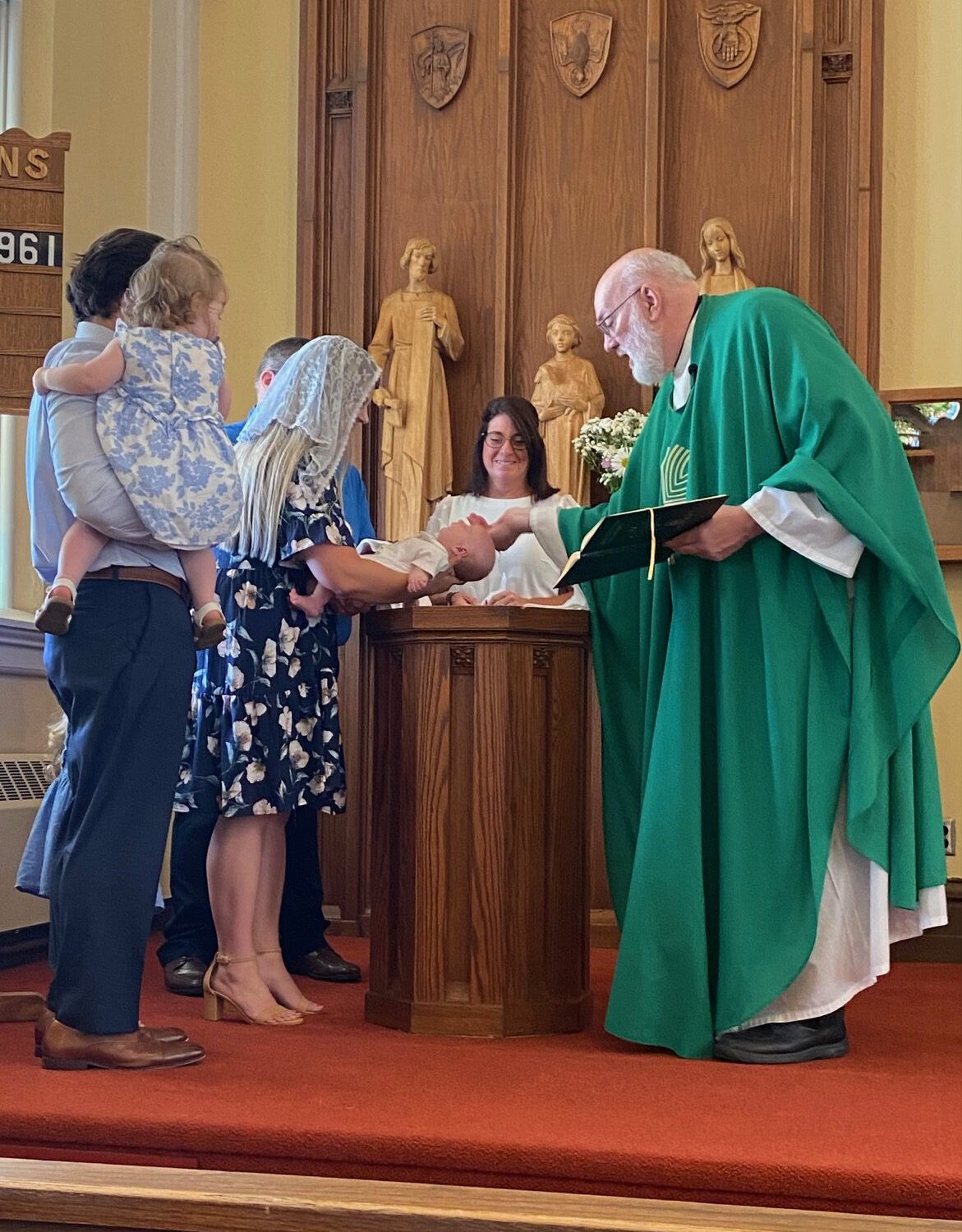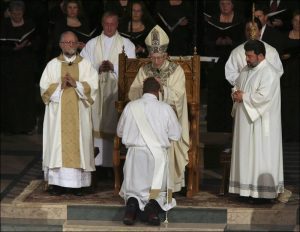Baptism
 Infant Baptism:
Infant Baptism:
Infants are ideally to be baptized in the parish church of their parents within the first few weeks after their birth. If your child is already much older than this, we are still very glad you are here! Baptism is an important religious responsibility. As parents, you have shared the gift of life with your child. Now you bring them to a spiritual rebirth in the sacrament that makes them a Catholic Christian and grants them the gift of eternal life in Christ. To get the process started, complete the online Baptism Request Form. Once we receive your request, a member of our team will contact you to talk through the next steps.
Childhood Baptism:
When a child of teachable age is to be baptized, a process of preparation is provided for the child, according to his or her age and ability. Please contact the parish office for more information.
Adult Baptism:
Adult Baptism follows the ancient order of the catechumenate. This is referred to as OCIA (the Order of Christian Initiation for Adults). OCIA offers a person a period of months to inquire and receive information about the Christian life, while regularly attending community gatherings with others who are likewise interested in joining the Catholic Church.
Eucharist
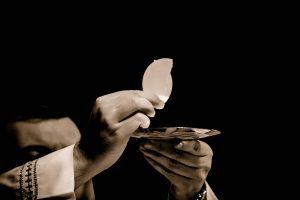
First Communion
At St. Joseph, children prepare to receive First Holy Communion when they are in the second grade. The preparation is through St. Joseph Catholic School or the Parish School of Religion. After receiving preparation throughout the fall and winter, students receive the Sacrament of First Holy Communion in the Spring.
Confirmation
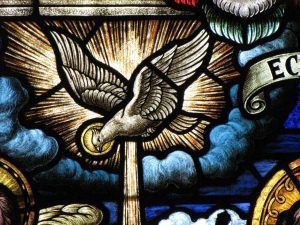
Confirmation:
In order to begin the process, your child should either attend St. Joseph Catholic School or PSR (Parish School of Religion) one year prior to the start of Confirmation classes. Confirmation class begins in the fall of the child’s 8th-grade year. In the spring, the students receive the Sacrament of Confirmation at Most Holy Rosary Cathedral in Toledo.
If you are an adult seeking Confirmation, your Confirmation process will be slightly different. Your Confirmation classes will occur on an individual basis, and you will receive the Sacrament of Confirmation at Easter Vigil Mass. Please contact the parish office to discuss your specific situation.
Reconciliation
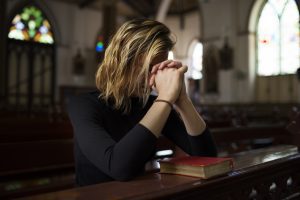
Guide to Confession & Examination of Conscience
May the Passion of Our Lord Jesus Christ, the intercession of the Blessed Virgin Mary and of all the saints, whatever good you do and suffering you endure, heal your sins, help you grow in holiness, and reward you with eternal life. Go in peace.
–Rite of Penance, no. 93
How to go to Confession
1 Preparation: Before going to confession, take some time to prepare. Begin with prayer, and reflect on your life since your last confession. How have you—in your thoughts, words, and actions— neglected to live Christ’s commands to “love the Lord, your God, with all your heart, with all your soul, and with all your mind,” and to “love your neighbor as yourself” (Mt 22:37, 39)? As a help with this “examination of conscience,” you might review the Ten Commandments and the Beatitudes (Ex 20:2-17; Dt 5:6-21; Mt 5:3-10; or Lk 6:20-26).
2 Greeting: The priest will welcome you; he may say a short blessing or read a Scripture passage.
3 The Sign of the Cross: Together, you and the priest will make the Sign of the Cross. You may then begin your confession with these or similar words: “Bless me, Father, for I have sinned. It has been [give days, months, or years] since my last confession.”
4 Confession: Confess all your sins to the priest. If you are unsure what to say, ask the priest for help. When you are finished, conclude with these or similar words: “I am sorry for these and all my sins.”
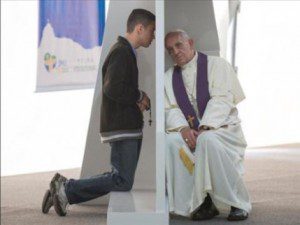
5 Penance: The priest will give an act of penance. The penance might be prayer, a work of mercy, or an act of charity. He might also counsel you on how to better live a Christian life.
6 Act of Contrition: After the priest has conferred your penance, pray an Act of Contrition, expressing sorrow for your sins and resolving to sin no more.
Act of Contrition
Oh, my God, I am heartily sorry for having offended You.
I detest all my sins because they displease You, who are all good and deserving of all my love.
I firmly intend with the help of Your grace, to
To sin no more
To avoid whatever leads me to sin
And to change my life for the better through
prayer, good deeds, and acts of self-denial.
Amen.
7 Absolution: The priest will extend his hands over your head and pronounce the words of absolution. You make the sign of the cross and respond, “Amen.”
8 Praise: The priest will usually praise the mercy of God and will invite you to do the same. For example, the priest may say, “Give thanks to the Lord for he is good.” And your response would be, “His mercy endures forever” (Rite of Penance, no. 47).
9 Dismissal: The priest will conclude, often saying, “Go in peace.” You reply “thanks be to God”
Anointing of the Sick
“Is any among you sick? Let him call for the elders of the church, and let them pray over him, anointing him with oil in the name of the Lord” James 5:14
Who should receive this sacrament?
“The sacrament may and should be given to [any Catholic] whose health is seriously impaired…it may not be given indiscriminately or to any person whose health is not seriously impaired.”
(Pastoral Care of the Sick, General Introduction, footnote [*] to para. 8, emphasis added)
This means things like an aching knee would not in itself be enough reason to seek the sacrament. The sacrament should not be thought of as a general remedy for current ailments or to ward off future illnesses. As indicated below, it is intended primarily to address spiritual issues related to serious health issues.
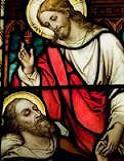
When should a Catholic person receive this sacrament?
“…as soon as any one of the faithful begins to be in danger of death from sickness or old age.”
(Pastoral Care of the Sick, Apostolic Constitution, para. 6)
The Church here recognizes that a person needs not to be in the actual process of dying to receive this sacrament. The person needs only to be experiencing a condition that seriously impacts his/her health. This includes serious mental illnesses, but not things like the common cold or non-serious effects of old age.
What are the effects of this sacrament?
“…raises up and strengthens the soul of the sick person, arousing a great confidence in the divine mercy. Thus sustained, the sick person may more easily bear the trials and hardships of sickness, more easily resist the temptations of the devil…and sometimes regain bodily health, if this is expedient for the health of the soul.” Pastoral Care of the Sick, Apostolic Constitution, para. 6 quoting Council of Trent)
“The Church exhorts [those who suffer] to contribute to the welfare of the whole people of God by associating themselves with the passion and death of Christ (see Roms 8:17, Col 1:24, Tim 2:11-12, 1 Peter 4:13).” The Church empathizes with those who suffer and calls them united their sufferings to Jesus at Calvary. As St. Paul says, “now I rejoice in my sufferings for your sake, and in my flesh I am filling up what is lacking in the afflictions of Christ on behalf of His body, which is the Church.”
Matrimony

Holy Matrimony:
Planning a wedding is a very exciting and busy time for couples. The first thing both the future bride and the future groom should do is fill out a Marriage Request Form. When each person has completed and submitted their request, they will be contacted by a member of our prep team to discuss the next step. Please, do not set a wedding date prior to speaking to the parish office. A minimum of six months is required before a wedding can be scheduled in order to allow time for marriage instruction classes.
Holy Orders
Holy Orders:
In the Sacrament of Holy Orders, or Ordination, the priest being ordained vows to lead other Catholics by bringing them the sacraments (especially the Eucharist), by proclaiming the Gospel, and by providing other means to holiness.
Is God calling you? Be open to listening to God. Embrace the possibility of whatever God has in mind for you. All of us are called by God to be disciples and to grow in our understanding of what faith is about.
Becoming a priest or a man or woman religious is not primarily our own decision…. Rather it is the response to a call and to a call of love.
If you would like more information, please call the Parish Office
Funeral

Funeral Planning
The Office Manager will guide you through the process of planning the funeral Mass. Prior to the meeting, you may select Funeral Readings from the document. You may also look through the hymnal for music. If you have any questions, please contact the Parish Office at 419-468-2884.

